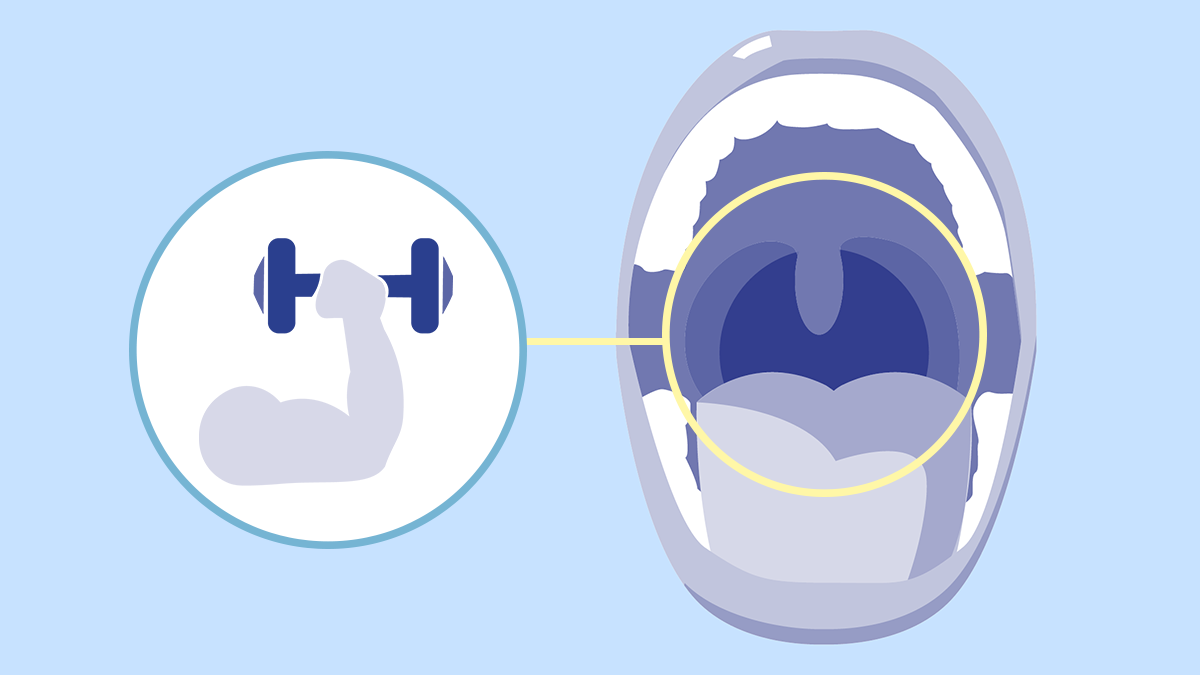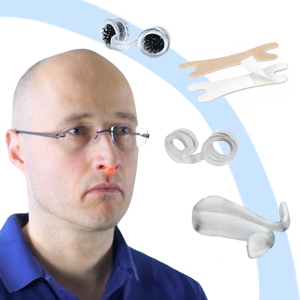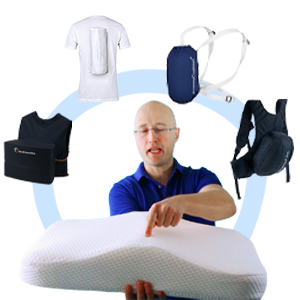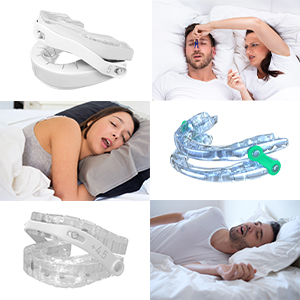You are looking for alternatives to classic anti-snoring devices (for instance, snoring mouthpieces)? Then these highly-focused stop snoring exercises are likely just the thing for you. But you are not doing squats or lunges! Instead, you are training your mouth and throat muscles – learn more about these exercises to stop snoring now.
Exercises
Exercising the mouth, throat and soft palate muscles can be very effective. A major reason for snoring is that the musculature and the tissue in the pharyngeal cavity loses tone. In extreme cases the respiratory tract collapses fully, thus leading to an airway obstruction: You cannot breathe during sleep.
Sleep Apnea
These pauses in breathing breathing, also called „apnea“ in medical jargon, can last up to 40 seconds or more. Once the brain notices that the supply of air has been interrupted, it triggers a spontaneous wakening reaction called an ”arousal”. As a result of this so-called “arousal”, you start to wake up from your sleep, the muscle tension improves and the respiratory tracts open – and you get air again. Sleep apnea (OSAS) is a disease that has to be taken very seriously.
If you would like to avoid that the tissue in the throat area starts to relax, you should begin early on with keeping your mouth, throat and palatal muscles fit: This is exactly where targeted stop snoring exercises come in.
In practice, various approaches have emerged – we present the most popular exercises to stop snoring.
Why Singers Aren’t Among the Snorers
Of course we don’t know for sure, but can you imagine Robbie Williams being a snorer?! Surely not! In all likelyhood the star is a calm sleeper. Because his profession – his singing – has a positive effect on his throat musculature. British scientists (from the Royal Exeter Hospital ) carried out a study to determine whether singing is an effective snore therapy. The results are convincing: Singing on a daily basis can is one of the ways to stop snoring naturally, or at least reduce the severity, the frequency and the volume of snoring, thus improving sleep apnea symptoms.
The author Elizabeth Scott also describes the pronounced effect of singing on the palatal muscles. In her book “The Natural Way to Stop Snoring” she recommends singing a sharp „Ya“ or „Ye“ at regular intervals.
The choir director Alisa Ojay instead advises in her program “Singing for Snorers” to make „ung“-sounds, in which case the palate drops onto the tongue, and also “ga”-sounds, where the palate lifts itself up.
Say “Ahh”
The Brazilian physician Dr. Geraldo Lorenzi-Filho pursues a different approach. He draws on mouth and throat exercises to stop snoring which were originally developed for speech-language therapies: For instance, you push back the tongue along the palate or lift up the soft palate and uvula, while you say “Ahh”. In 2015, he concluded a clinical study on his stop snoring exercises The frequency of snoring was reduced by 36% among the study participants. The snoring volume even dropped by 60%. The participants exercised three times a day with each session taking 8 minutes. However, the general significance of the study is rather limited: The study was kept rather small and only involved 39 patients.
Stop Snoring Exercises – Being an Aborigine Once in a Lifetime
A study involving the digeridoo was conducted by physicians from Zurich that was published in the British Medical Journal in 2006.
It is a traditional musical instrument used by the North Australian Aborigines. The Didgeridoo is blown with „flapping“ lips. Sound changes are caused by different movements in the mouth and throat. Sounds are created, for instance, by speaking words and making various noises or narrowing the oral cavity with the tongue, cheeks and the lower jaw. Laryngeal movements also have an influence on the sound generated by the didgeridoo. All these movements train the throat and oral muscles and effectively help against snoring.
Initial study
The study of the Swiss researchers included 25 patients with mild sleep apnea syndrome and disturbing snoring. They were divided into two groups: some respondents played didgeridoo regularly for four months and the others did not. The result was that didgeridoo players felt less tired during the day than the control group. The number of breathing stops at night had also decreased.
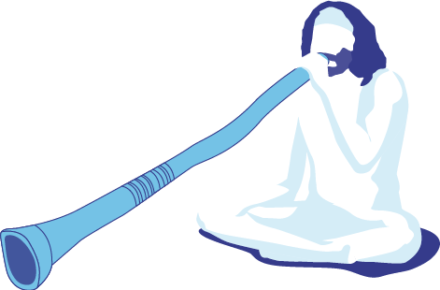
Follow-up study
A follow-up study demonstrated that didgeridoo playing helps prevent snoring by training the throat and mouth muscles. Photographs with 3D magnetic resonance imaging showed that fat deposits in the upper pharynx wall became smaller. In September 2017, the Zurich physicians Milo Puhan and Otto Brändli even received the Ig Nobel Prize for their investigations (the satirical Nobel Prize for curious research).
Although the didgeridoo is particularly effective against snoring, other wind instruments can be useful for snoring exercises, too.
Palate Workout by Harvey Flack
The British doctor Harvey Flack developed a training programme with exercises to stop snoring that specifically target the palatal muscles (relevant for mouth and tongue snoring). It counteracts age-related sagging of the palatal and jaw musculature. The workout includes special stop snoring exercises that should be done regularly before going to sleep. The good thing about it: You don’t need a lot of additional aids and appliances. You can do these exercises to stop snoring everywhere and at any time:
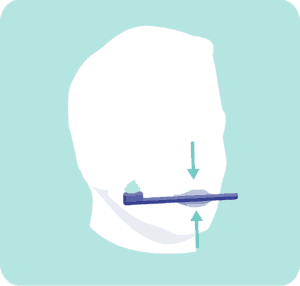
Stick a toothbrush or a pen between the teeth. Bite firmly for approximately 10 minutes.
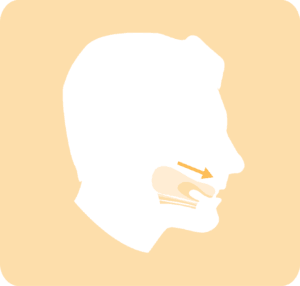
Firmly press your tongue against the teeth of the lower jaw for a few minutes. The mouth remains closed.

Push the lower jaw backwards tightly for a couple of minutes. Withstand the pressure with the help of your jaw muscles and repeat the exercise.
Meanwhile there are even anti-snoring trainers on the market that can effectively support your throat muscle workout throudh specially designed exercises to stop snoring.
FaceFormer Trainer for Stop Snoring Exercises
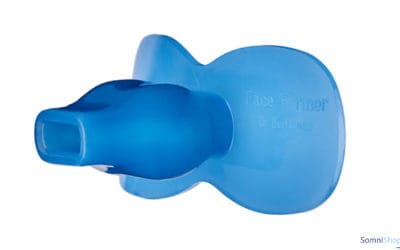
The Face-Former therapy was invented by a German patholinguist, Dr. Berndsen. He designed a training device called FaceFormer. The FaceFormer exercises are designed to restore the capacity to sleep again without snoring – and without any additional anti-snoring devices. To be successful with this training, you need to do the exercises on a regular basis. If you do not have the discipline for that, then this training tool (as any other training tool) will not be a viable investment.
FaceFormer workout
The FaceFormer training program should be applied three times a day for 7 minutes each over a period of 6 months. It includes exercises for training and relaxing the muscles. In that regard, the Face-Former is a real all-rounder: Not only the muscles of the mouth, throat and facial region are trained, but also brain activity and coordination are stimulated.
Anti-Snoring Trainer Dragon Pearl
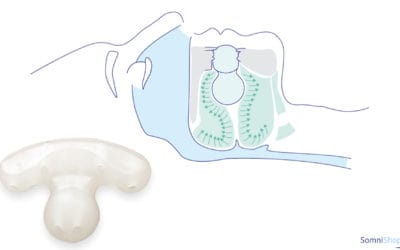
The Dragon Pearl is an anti-snoring trainer made of medical-grade synthetics, which is worn in the mouth at night. The roundish part has to be pushed underneath the tongue. The mouth base muscles are trained by the permanent slight pressure stimulation of the ball element. These muscles are in charge of pulling the tongue forward.
Dragon Pearl training
With consistent training, the tongue’s muscles will be strengthened within a few week to such an extent that you will no longer need the anti-snoring trainer. At this point, the tongue is strong enough not to slide back into the throat.
Nasal dilator purchasing advisor
What must you take into consideration when making a purchase? See all our nasal dilators presented here.
Positional therapy purchasing guide
Helps you make an informed buying decision when buying a positional therapy device, such as an anti-snoring vest or anti-snoring backpack.
Mandibular advancement device (MAD) purchasing guide
Advises you what you should pay attention to when buying a mandibular advancement device (MAD). We present different models and technical approaches here.
Medical Doctor, Berlin
Jan Wrede works as a medical doctor in Berlin. He studied medicine at FAU University in Erlangen-Nuremberg and Semmelweis University in Budapest. He had already written numerous scientific articles during his studies, especially on the subject of snoring.


